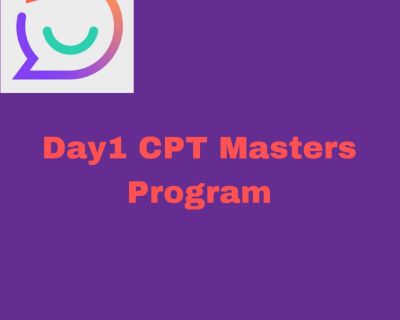Welcome to the Kandor Blog!
In this article, we will explore valuable tips to help you manage your time effectively during the IELTS Reading Test.
The Reading Test is an essential component of the International English Language Testing System (IELTS), and proper time management is crucial for success.
By implementing these strategies, you will optimize your performance and enhance your chances of achieving your desired score.
So, let’s dive in!
Understanding the IELTS Reading Test
Before we delve into time management techniques, let’s briefly understand the IELTS Reading Test. This section evaluates your ability to comprehend and extract information from various written texts.
The test comprises three sections, each containing a different type of passage. These include descriptive, factual, and analytical texts. Understanding the test format and scoring criteria is essential for effective time management.
If you’re not familiar with these aspects, you can refer to our comprehensive guide on the overview, format, and scoring of the IELTS Reading Test.
1. Develop Strong Reading Skills
Improving your overall reading skills is fundamental to managing your time effectively during the IELTS Reading Test. Regular practice is key.
Read a variety of materials, such as newspapers, articles, and books, to enhance your vocabulary, comprehension, and speed.
Our blog post on improving reading skills provides valuable tips to help you become a more efficient reader.
2. Skim and Scan Techniques
Skimming and scanning techniques are invaluable tools for quickly gathering information from a passage. Skimming involves rapidly glancing through the text to grasp the main idea and key points.
Scanning, on the other hand, entails quickly searching for specific information by focusing on keywords, numbers, or names.
These techniques save time and help you locate answers more efficiently.
For a detailed understanding of skimming and scanning, you can refer to our blog post on skimming and scanning techniques.
3. Time Allocation Strategy
Time management during the IELTS Reading Test necessitates a well-structured plan.
Divide your available time among the passages based on their difficulty level.
Skim through each passage initially to determine its complexity, then allocate time accordingly.
Challenging passages may require more time for comprehension and analysis, while simpler ones can be dealt with more swiftly.
By creating a time allocation strategy, you ensure that you cover all the passages within the given timeframe.
4. Identify the Main Idea and Details
Identifying the main idea of a passage and locating specific details are critical skills for the IELTS Reading Test. These skills not only aid in comprehension but also facilitate answering questions accurately.
While reading, make a mental note of the central theme and the supporting details. This helps you quickly locate relevant information when answering questions.
To learn more about identifying main ideas and details, refer to our blog post on the topic here.
5. Employ Effective Question-Answering Strategies
Familiarize yourself with various question types encountered in the IELTS Reading Test. Understanding the structure and requirements of each question type allows you to adopt appropriate strategies.
For instance, multiple-choice questions require careful elimination of incorrect options, while true/false/not given questions demand precise analysis of the passage.
Our blog post on strategies for different question types provides in-depth guidance on tackling different question types effectively.
6. Develop Vocabulary
Building a strong vocabulary is essential for comprehending complex passages and answering questions accurately. Enhance your vocabulary by actively engaging in activities such as reading English literature, learning new words, and practicing their application.
Our blog post on the importance of vocabulary development provides useful tips and resources to expand your word bank.
7. Make Inferences and Predictions
The ability to make inferences and predictions while reading is a valuable skill that aids in understanding the passage more deeply.
By analyzing the context, tone, and supporting details, you can draw logical conclusions and anticipate the direction of the text.
This skill is particularly useful when encountering unfamiliar vocabulary or complex sentence structures. For a comprehensive understanding of making inferences and predictions, refer to our blog post on the topic here.
8. Efficient Note-Taking
Effective note-taking plays a crucial role in managing time during the IELTS Reading Test. Develop a shorthand system to jot down key points, important details, and connections between ideas. Utilize symbols, abbreviations, and bullet points to maximize efficiency.
Well-organized and concise notes enable quick reference and eliminate the need for re-reading passages. For valuable tips on enhancing your note-taking skills, check out our blog post here.
9. Stay Focused and Concentrated
Maintaining focus and concentration throughout the test duration is essential for efficient time management. Avoid distractions and create a conducive study environment.
Practice mindfulness techniques, such as deep breathing and visualization, to enhance concentration.
Additionally, our blog post on staying focused and concentrated provides additional strategies to help you maintain your attention during the test.
Conclusion
Effectively managing your time during the IELTS Reading Test is crucial for achieving your desired score. By implementing these tips, you can optimize your performance and increase your chances of success.
Remember to develop strong reading skills, employ skimming and scanning techniques, allocate time wisely, identify main ideas and details, use effective question-answering strategies, develop vocabulary, make inferences and predictions, utilize efficient note-taking, and stay focused and concentrated throughout the test.
For more valuable resources and insights related to the IELTS Reading Test and other aspects of the exam, feel free to explore our blog. Best of luck with your IELTS preparation journey!















